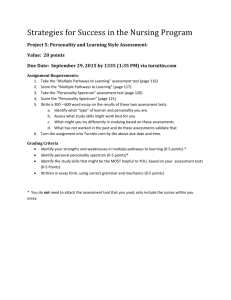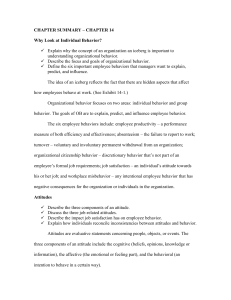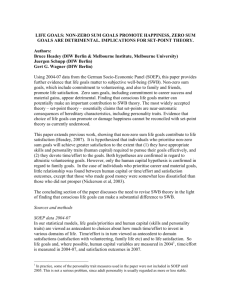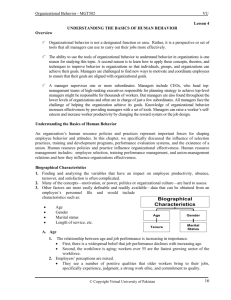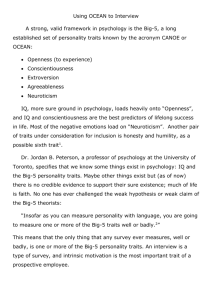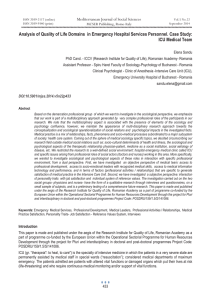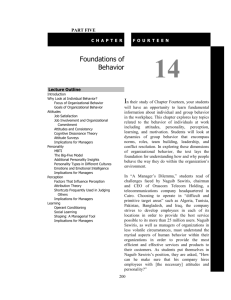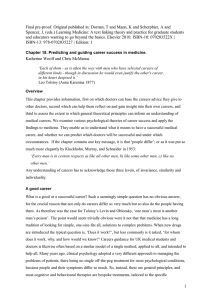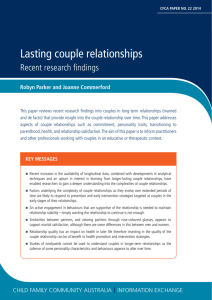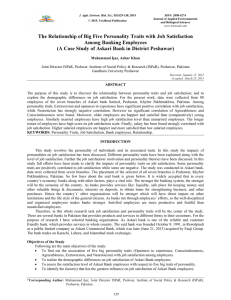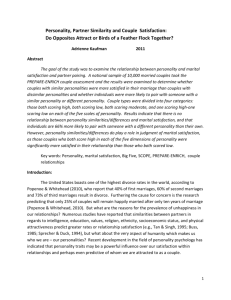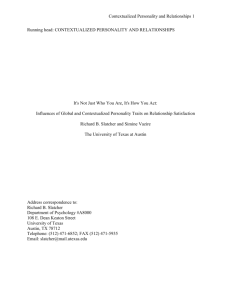Self-Assessment
advertisement
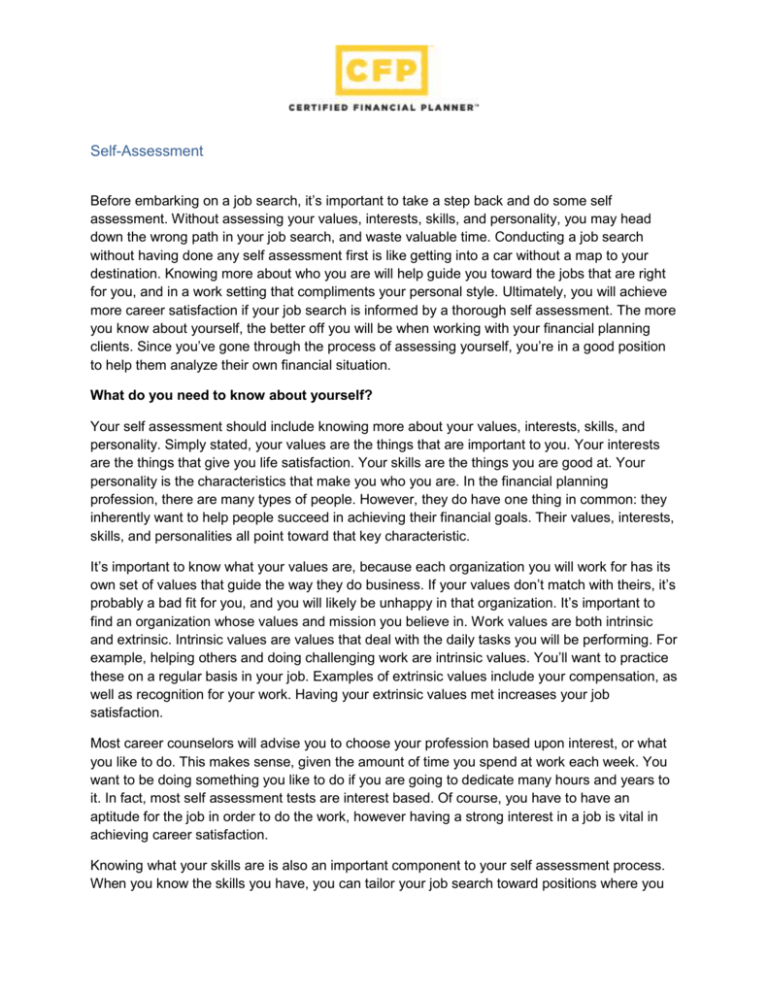
Self-Assessment Before embarking on a job search, it’s important to take a step back and do some self assessment. Without assessing your values, interests, skills, and personality, you may head down the wrong path in your job search, and waste valuable time. Conducting a job search without having done any self assessment first is like getting into a car without a map to your destination. Knowing more about who you are will help guide you toward the jobs that are right for you, and in a work setting that compliments your personal style. Ultimately, you will achieve more career satisfaction if your job search is informed by a thorough self assessment. The more you know about yourself, the better off you will be when working with your financial planning clients. Since you’ve gone through the process of assessing yourself, you’re in a good position to help them analyze their own financial situation. What do you need to know about yourself? Your self assessment should include knowing more about your values, interests, skills, and personality. Simply stated, your values are the things that are important to you. Your interests are the things that give you life satisfaction. Your skills are the things you are good at. Your personality is the characteristics that make you who you are. In the financial planning profession, there are many types of people. However, they do have one thing in common: they inherently want to help people succeed in achieving their financial goals. Their values, interests, skills, and personalities all point toward that key characteristic. It’s important to know what your values are, because each organization you will work for has its own set of values that guide the way they do business. If your values don’t match with theirs, it’s probably a bad fit for you, and you will likely be unhappy in that organization. It’s important to find an organization whose values and mission you believe in. Work values are both intrinsic and extrinsic. Intrinsic values are values that deal with the daily tasks you will be performing. For example, helping others and doing challenging work are intrinsic values. You’ll want to practice these on a regular basis in your job. Examples of extrinsic values include your compensation, as well as recognition for your work. Having your extrinsic values met increases your job satisfaction. Most career counselors will advise you to choose your profession based upon interest, or what you like to do. This makes sense, given the amount of time you spend at work each week. You want to be doing something you like to do if you are going to dedicate many hours and years to it. In fact, most self assessment tests are interest based. Of course, you have to have an aptitude for the job in order to do the work, however having a strong interest in a job is vital in achieving career satisfaction. Knowing what your skills are is also an important component to your self assessment process. When you know the skills you have, you can tailor your job search toward positions where you will flex those skills the most. In the financial planning profession, communication skills are highly valuable, in addition to analytical, critical thinking, and customer service skills. Skills can be learned through education and experience as well as coming naturally to you. A highly potent combination is using a skill that interests you on the job. Finally, knowing your personality is a part of your self assessment process. Are you extroverted or introverted? Logical or intuitive? Flexible or methodical? Team oriented or solitary? Once you’ve identified these characteristics in yourself, you can look for them in a job description as well. In addition, you can look for a work setting that will compliment your personality, so you won’t feel like a fish out of water. For example, some financial planning positions work in a team environment, in combination with lawyers and accountants. In other cases, you will work alone with a client to develop a financial plan. You need to know what kind of environment fits your personality so you will thrive. Seek Advice To assist you in your self assessment process, engage former employers and trusted coworkers. Ask them how they would rate your key skills. Ask what their impressions are of your personality. Sometimes it is difficult to see ourselves objectively. Having an outside opinion can help you hone your self assessment, and give you different perspectives to consider. While it’s helpful to seek out a professional to conduct self assessment tests and analyze them with you, there is a lot of self assessment you can do on your own, just by contemplating the four factors mentioned here: values, interests, skills, and personality. In addition, there are free tools online you can use. One site run by the Department of Labor is called O*NET, and has assessments that are self-guided. However you choose to do your self assessment, know that this process is not optional in a solid job search plan. Doing a thorough self assessment will give you the map that will guide you to your next career destination.








